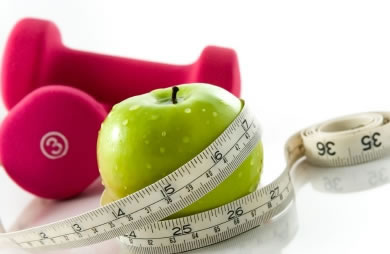 Editor's note: As wonderful as motherhood is, childbirth can come with some pretty unpleasant side effects. One that many of us don't like to talk about--even with our girlfriends or health-care providers--is incontinence. The leaking, dripping, constant urge to "go," and other bladder issues that come after giving birth aren't just another badge of honor of motherhood like stretch marks or C-section scars. Those bladder issues often can be alleviated, but only if women speak up.
Editor's note: As wonderful as motherhood is, childbirth can come with some pretty unpleasant side effects. One that many of us don't like to talk about--even with our girlfriends or health-care providers--is incontinence. The leaking, dripping, constant urge to "go," and other bladder issues that come after giving birth aren't just another badge of honor of motherhood like stretch marks or C-section scars. Those bladder issues often can be alleviated, but only if women speak up. Statistics from the National Association for Continence show that women wait an average of 6.5 years to speak with their physician about incontinence because they feel embarrassed and lose a sense of their feminine confidence. Waiting that long can create bigger problems than just incontinence. Surprisingly, more than 25 million people in the U.S. are expected to experience some form of incontinence this year, and about 80 percent of those people are women. Dr. Nicole Massie, a board certified urologist specializing in female incontinence and pelvic prolapse at the Urology Centers of Alabama (Birmingham), is working to spread the word out to women that they shouldn't be embarrassed or shy about talking with their physician about symptoms of incontinence. Dr. Massie has been helping out the Depend brand recently but is not being paid by Kimberly-Clark. She offered to share some of her expertise with our members. Read our interview with her. What are the different types of incontinence? Dr. Massie: There are various different types of incontinence. Urinary incontinence comprises 7 types: stress incontinence, urge incontinence, overflow incontinence, functional incontinence, mixed incontinence, anatomic or developmental abnormalities and temporary incontinence. The two most prevalent types of incontinence include stress and urge incontinence. However, most women are affected by a mixed incontinence. Stress incontinence is involuntary leakage of urine while doing an activity that involves an increase in abdominal pressure (i.e. exercising, coughing sneezing, laughing or lifting. Also included would be a change in position from a sitting to standing. These type of activities increase the abdominal pressure and thus if the outlet is weak urine may leak out. Stress incontinence is the most common type of incontinence among younger women. This may be due to weakened pelvic floor muscles and is very common after childbirth. It is not the same as overactive bladder syndrome. Overactive bladder typically describes women who have frequency, urgency and/or urge incontinence. Urge incontinence involves sudden urge to urinate that cannot be suppressed. Typically, with an overactive bladder, you may also experience frequency (which is the amount of time using the bathroom) and urgency (sudden desire to void). What is normal when it comes to leaking and dripping after childbirth? Dr. Massie: Many women who are pregnant or have had babies have leaking pelvic floor muscles. Typically, this tends to improve as the women's pelvic floor muscles are re-trained but it is not unusual for women to experience leakage when they have an increase in abdominal activity (i.e. if they cough, sneeze, laugh or exercise they may notice leakage). After the obstetrician clears the patient from childbirth, it is important for women to work on their pelvic floor muscles to re-strengthen them so as to help improve their urinary incontinence. How does childbirth and pregnancy affect urinary health? Dr. Massie: Childbirth and pregnancy may affect your urinary health. It may be a cause for incontinence but the vaginal pH may change, thus predisposing women to recurrent urinary tract infections. Also women may notice that when they are pregnant, their hormone levels are changing and this may also indirectly affect urinary health. As the pregnancy increases, women have more frequency. This is due from the enlarged uterus pressing on top of the bladder. Women may develop a craving for certain types of foods and drinks but it is important to keep up water consumption during pregnancy. What can be done prior to childbirth to prevent urinary issues? Dr. Massie:Women should try to stay in shape and do Kegel exercises even prior to childbirth to help prevent urinary incontinence. Kegel exercise is a basic exercise that can be done anytime and anywhere. What you are trying to do is isolate your pubococcygeus muscles and hold them in a squeezing position, count for 3-5 seconds, release and relax for 5 seconds. You should do these in 5 repetitions per day. Gradually, you should increase to 3-4 times per day; however, sometimes women find it difficult to isolate their pubococcygeus muscles and at our office, Urology Centers of Alabama, we have EMG studies that can help the patient isolate these exact muscles. If a woman has incontinence issues post birth, what should be the plan of action? What exercise do you recommend? Dr. Massie: As stated before, if a woman has incontinence issues post birth, I recommend first of all Kegel exercises. We would evaluate the patient to make sure they do not have a urinary tract infection or birth trauma. Occasionally, if they have urgency incontinence we recommend diet modifications and avoidance of carbonated drinks, caffeine drinks, citrusy drinks, coffee, chocolate and cessation of smoking. Occasionally, if the incontinence is stress incontinence and is prolonged, the patient may need further evaluation and further surgery. I recommend Kegel exercises initially. At what point should surgical options be pursued? Dr. Massie: If a patient continues to have stress urinary incontinence (i.e. leaking with coughing, sneezing or laughing), I recommend a mid urethral sling. This is a minimally invasive procedure that can be done as an outpatient. The patient is put to sleep and a sling is placed underneath the mid portion of the urethra, tensioned appropriately so as to help tighten the outlet so that a patient does not leak. The patient must be evaluated by a surgeon for this. In most cases this works very well and patients are very pleased. However, the physician needs to make sure this is done strictly for stress incontinence and not for urge incontinence. Are there any dietary or exercise changes that can help with incontinence? Dr. Massie: Yes. Dietary issues like stated before--avoidance of the 5 C's (i.e. coffee, carbonation, chocolate, citrus, and cigarettes). Exercises such as Kegel exercises can be performed to help with incontinence. Furthermore, just getting out and walking helps with patient's overall physical shape. How can incontinence issues progress if not addressed? Dr. Massie: Incontinence issues sometimes may be become worse if not addressed. For instance, if the reason for the incontinence is actually an infection, the infection can progress to the patient's kidneys and the patient can get very sick. If the incontinence is due to some sort of bladder injury or a tumor, this can go undiagnosed and cause problems down the line. It is important to either talk to your doctor or look at your own diet to make sure that dietary issues that may cause the incontinence be eliminated as this is an easy way to treat the incontinence. Does a woman need to see an urologist or can her OB-GYN treat incontinence? Dr. Massie: A woman needs to see either her urologist or an OB-GYN. Most of the time, both of these doctors are very well versed in the treatment of incontinence and it really comes down to who the woman feels comfortable with. Urologists have extensive training in the management of incontinence and can be a very good resource. If a woman is experiencing leaking or dripping, what protective products can she use? Dr. Massie: She can use pads if it is minor. If it is excessive, she may have to wear protective underwear such as Depends. They are designed especially for women to look and feel like regular underwear. Women have a choice now - they don't have to be embarrassed or settle for something uncomfortable. Oftentimes the psychological and emotional effects of incontinence are more severe than the physical ones. How can a woman cope? Dr. Massie: A woman can sometimes be affected psychologically with incontinence. It does destroy her self-esteem. The most important thing to know is that this is an issue that can be addressed with any physician and no woman should feel that this is an issue that is untreatable. The most important thing to remember is that if a woman does not tell her physician that sometimes the physicians do not seek these problems out. |
Leaks, Drips, and Trickles: What's Normal and What's Not?
A Doctor Answers All Your Questions about Incontinence
Page 1 of 1





Member Comments